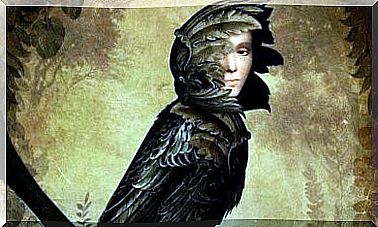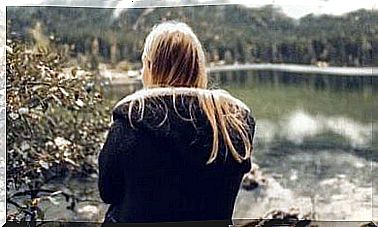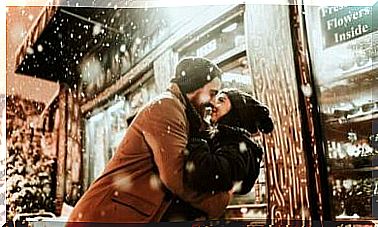The Experiment: Human Nature
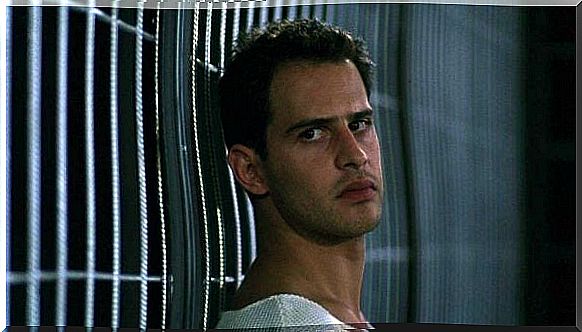
The Experiment is a German film about human nature from 2001. It was directed by Oliver Hirschbiegel. It is based on the play The Black Box. This play was inspired by a real experiment performed at Stanford in 1971. This experiment has been questioned extensively. The film differs quite a bit from what actually happened. Yet it leads us to ask what human nature really is. Are we good or evil? Are there good and bad people? Without a doubt, it is a film that deals with philosophy, ethics, morality, sociology and psychology.
It starts with the introduction of Tarek Fahd, a taxi driver with financial problems. He decides to raise some extra money by participating in an experiment related to human nature. Apart from being paid for the experiment, he decides to record everything that happens for a publication he had previously worked on. The money is what forces the participants to come together as guinea pigs in the experiment. It will eventually ruin their lives.
The participants
Participants are extremely diverse: a taxi driver, an airline employee, a manager, an Elvis impersonator, etc. Everyone is looking for a new experience. But above all, they seek financial compensation. These participants will undergo various psychological tests . They must also undergo interviews. This determines what role they will have: prisoner or prison guard. We will see some participants show doubts about themselves. Others have great self-confidence. This will help the doctors in charge of the experiment assign them their roles.
None of the participants have been in prison before. No one seems like a person who would be outside of what is considered “normal”. They all have a job and a family. In short, they all live very ordinary lives. When they get to know each other in the waiting room, they seem to get into a pleasant conversation. They seem to be interested in getting to know each other. This is before they know what roles they have been assigned. Yet what appears to be a game at first glance becomes a nightmare. It will make us reconsider some aspects of human nature.
Stanford Prison Experiment – Human Nature
The experiment on which the film is based was conducted at Stanford University (USA) in 1971. It was led by Professor Zimbardo and 24 students, all psychologically stable, participated. Nevertheless, the experiment went out of control. Those who participated fully submitted to the rules that had been assigned to them.
This experiment has been questioned and criticized for transcending ethical boundaries. However, the results were so surprising that they made us reconsider the role of society. How is it possible that completely normal and healthy individuals become sadistic and violent? What happens when we deprive an individual of his freedom?
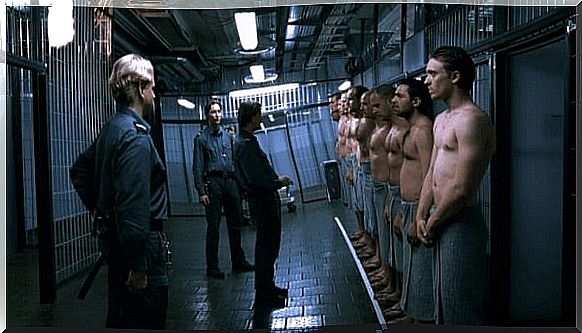
Many of the participants had serious psychological effects. Those who took on the role of prisoners immediately became submissive and resigned to their fate. The guards began to abuse their power and use really cruel punishment. The film shows us a bit of this experiment, but there are some differences:
- The roles assigned in the original experiment were random. But in the film, they were assigned roles based on a series of tests given to the participants.
- In the Stanford experiment, the prisoners were arrested as if they had committed a real crime. This does not happen in the movie. They only assign them their roles when their participation is accepted.
- In the film, the only security we see is on the surveillance cameras and the three doctors who monitor the experiment without intervening. At Stanford, Zimbardo himself participated as a guard. In addition, two real police officers monitored.
The experiment and social roles
The experiment transports us to a fictitious prison. The scenes are really cold. There are hardly any warm colors in any part of the film. They are not even there before they start the experiment. The 20 participants must spend 14 days in a fictitious prison. The guards will not receive any orders, except for a small rule in the prison. Other than that, they can do whatever they want when a prisoner does not obey. Nevertheless, they are warned that they must not use violence.
The prisoners, on the other hand, are completely stripped of their identities. They stop having a name and become nothing more than a number. They have to go without their clothes and only use a thin fabric. The guards wear uniforms. At first, many of them take it as a joke. They think it’s nothing more than a game. They think that in a few days they will return to their home, and everything will return to normal. All this while dr gets a few kroner richer.
Nevertheless , we see that some participants take their role seriously from the moment they are assigned. If they are prisoners, they become more submissive. If they are guards, they become more authoritarian. The film takes on a more dramatic and claustrophobic tone as it continues. It shows us sadism and abuse of power by prison guards. At the same time, it shows us the suffering of the prisoners.
Human nature – an unpredictable variable
Some of the prisoners have greater difficulty getting into their role. On the other hand, the guards seem to feel very comfortable in theirs. Most guards are children. They have family and a good job. But when they get some power, they act in a way they never thought they would. They reach extreme heights of violence and send prisoners through atrocities.
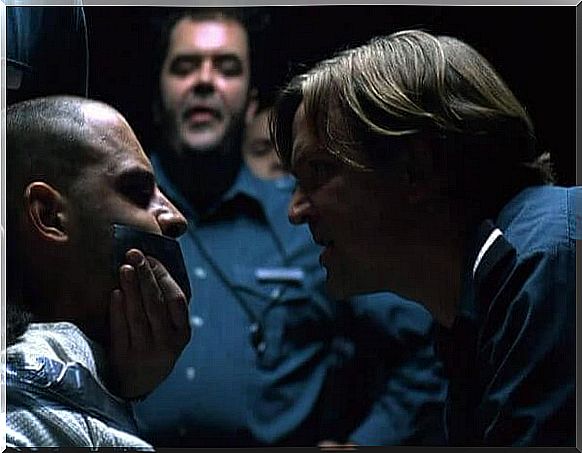
As the days go by, the situation becomes more difficult. Every day the abuse increases. Every day, the suffering of the prisoners is greater. In a way, Tarek produces some of the situations. This is trying to get a good story for the newspaper. However, we see that hallucinations and ideas about conspiracies take hold of all participants. This causes them to act in unforeseen ways.
A society without freedom
One of the people who is most interesting is Berus. He works for an airline. This leads us to believe that he is mentally stable. Yet he is the cruelest of the guards. He becomes the leader of the prison guards. The rest of them will accept the leadership without complaint.
The experiment shows us a society free of freedom. People are reduced to numbers and lose their identity. They are assigned a role and consequently act according to it. They end up playing this role, even though they know it’s not real.
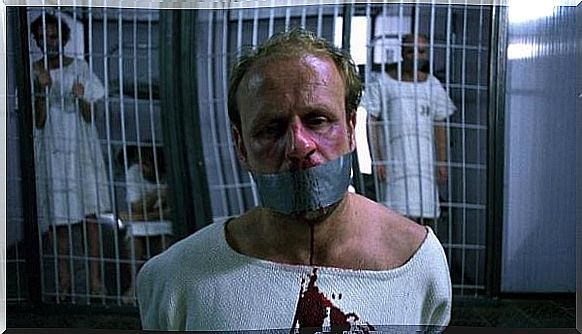
Many of us will try to explain it in many ways. Even when we do, and we know ourselves well, we can not predict how we would act in an uncontrolled situation outside the norm. It seems that many of us assume that there are good and bad people. In addition, we certainly do not consider ourselves bad people. But do we really know our own nature?
The film and the experiment ask us to consider whether we are completely free. Whether we really have the free will that philosophers talk so much about. If we really know what human nature is. Are we behaving with total freedom? Maybe we are just victims of a role that has been assigned to us, and we behave accordingly. The experiment invites us to ask endless questions about our own nature and freedom.
